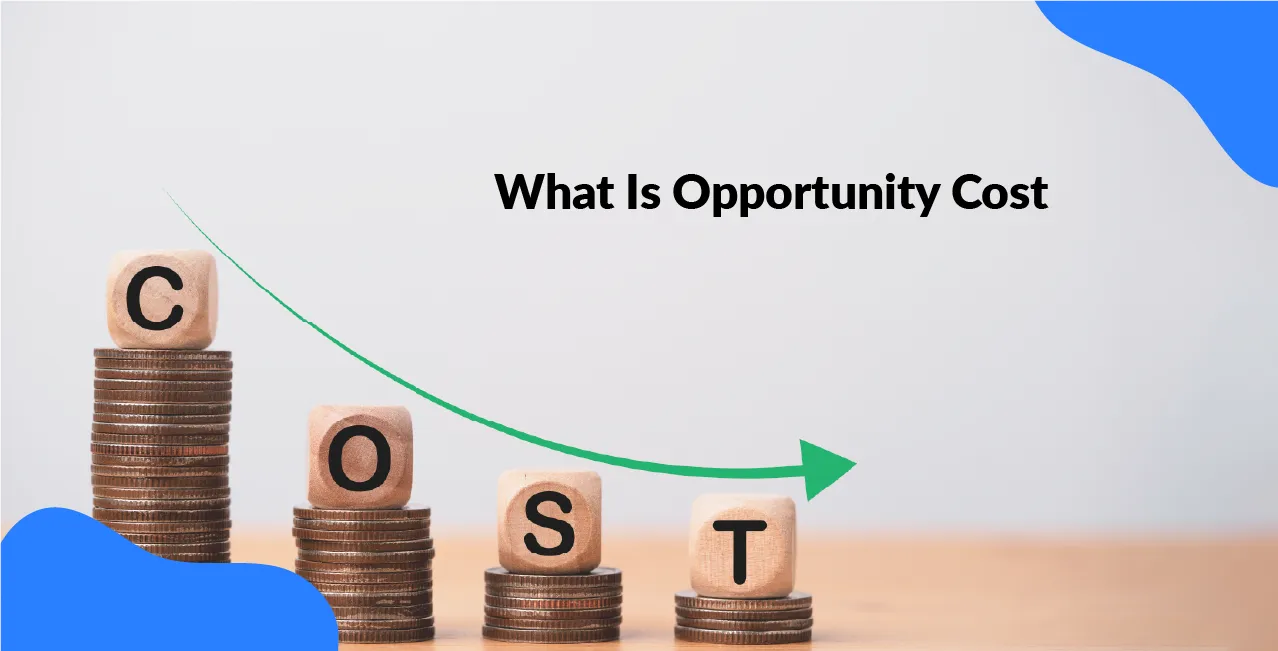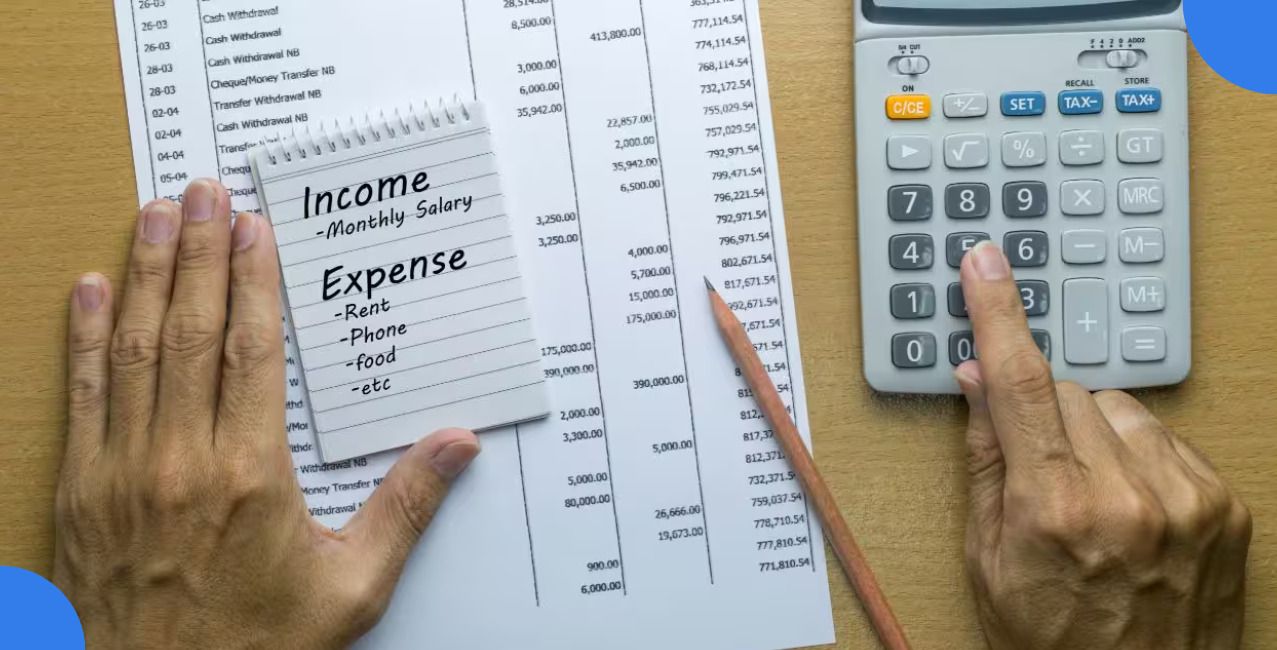What Is Opportunity Cost? Making Smarter Financial Choices

Check Your Loan Eligibility Now
By continuing, you agree to LoansJagat's Credit Report Terms of Use, Terms and Conditions, Privacy Policy, and authorize contact via Call, SMS, Email, or WhatsApp
Money choices seem simple, but there's always a hidden cost. Every pound you spend means missing out on something else. This secret is called opportunity cost, and it changes everything about how you think about money. Let's explore this in this blog.
1. “The Hidden Price Tag” – What Opportunity Cost Means
Opportunity cost is the value of the best alternative you give up when making a choice. It's not just about the money you spend. It's about what you could have gained instead. Every decision has a hidden price tag. This concept helps you make smarter financial choices by considering all options.
When you choose one thing, you automatically say no to something else. The opportunity cost is what that "something else" could have given you. Understanding this helps you weigh your options better.
Shashank's Choice Example
Shashank has ₹5,000 to spend. He's considering two options:
If Shashank chooses the laptop course, his opportunity cost is the smartphone's benefits. If he picks the smartphone, he loses the potential income increase. The course offers better long-term value, making it the smarter choice.
2. “Dollars vs. Days” – Opportunity Cost Beyond Money
Opportunity cost isn't just about money. It includes time, effort, and other resources too. Time is often more valuable than money because you can't get it back. When you spend time on one activity, you lose the chance to do something else valuable.
Read More - Central Bank of India Balance Check Number
Think about your choices differently. Consider what you're giving up in terms of time, learning, relationships, and experiences. Money can be earned again, but time cannot. This broader view helps you make better life decisions.
Gautam's Weekend Choice
Gautam has a free Saturday. He's considering two options:
If Gautam works, he earns money but risks poor exam results. If he studies, he invests in his future but loses immediate income. The study choice offers better long-term value despite the short-term financial loss.
3. “Simple Formula, Big Impact” – Calculating Opportunity Cost in Investing
Calculating opportunity cost in investing is straightforward. The formula is: Opportunity Cost = Return of Best Alternative - Return of Chosen Option. This helps you see if your investment choice is truly the best one available.
Always compare your chosen investment with the next best option. If the result is positive, you made a good choice. If negative, you could have done better. This simple calculation can save you from poor investment decisions.
Yash's Investment Dilemma
Yash has ₹10,000 to invest for one year. He's comparing two options:
The mutual fund gives higher returns. Choosing the fixed deposit costs Yash ₹300 in opportunity cost. The mutual fund is clearly the better choice, despite being slightly riskier.
4. “Real-Life Trade-offs” – From Smoothies to Stocks
Opportunity cost exists in every spending decision. From daily purchases to major investments, you're always choosing one thing over another. Small choices add up over time. That daily smoothie could become investment money. Understanding these trade-offs helps you prioritise better.
Consider the long-term impact of small expenses. What seems insignificant today might cost you significant wealth tomorrow. Smart people think about opportunity cost before spending. This mindset transforms your financial future.
Fahad's Daily Choice Impact
Fahad spends ₹150 daily on smoothies. He's considering investing this money instead:
Also Read - Central Bank of India Debit Card
The opportunity cost is massive. By choosing smoothies, Fahad loses ₹2,06,000 in potential wealth over five years. The same money invested in stocks could nearly double. Small daily choices create huge long-term differences.
5. “Avoid the Regret Trap” – Smart Strategies to Minimize Missed Opportunities
Regret comes from poor decisions and missed chances. You can avoid this by planning ahead and comparing options carefully. List all alternatives before choosing. Calculate potential returns for each option. Set clear financial goals to guide your decisions.
Create decision frameworks that work for you. Always sleep on big financial choices. Research thoroughly before committing money. Diversify your investments to reduce missed opportunity risks. These strategies help you make confident decisions without regret.
Dravid's Strategic Planning
Dravid has ₹25,000 for investment. He uses smart strategies to avoid regret:
Dravid chooses the balanced mix. It offers good returns with manageable risk. His thorough planning minimises regret regardless of outcomes.
Conclusion
Opportunity cost shows what you lose when choosing one thing over another. By thinking carefully, you can make smarter money choices and avoid future regrets.
FAQs
1. What is opportunity cost?
It’s what you give up when you pick one thing over another.
2. Does it only involve money?
No, it includes time, effort, and other lost chances too.
3. How do I calculate it?
Compare what you gain from your choice with the next best option.
4. Why is it important?
It helps you make smarter decisions by seeing hidden costs.
Other Related Pages | |||
About the author

LoansJagat Team
Contributor‘Simplify Finance for Everyone.’ This is the common goal of our team, as we try to explain any topic with relatable examples. From personal to business finance, managing EMIs to becoming debt-free, we do extensive research on each and every parameter, so you don’t have to. Scroll up and have a look at what 15+ years of experience in the BFSI sector looks like.
Subscribe Now
Related Blog Post

Salaried vs. Self-Employed: Who Gets a Personal Loan Faster in 2025?

Too Many EMIs? What to Do When Monthly Payments Become Unmanageable

Post Office Customer Care Number: Helpline & Support
Recent Blogs
All Topics
Contents
Quick Apply Loan
Consolidate your debts into one easy EMI.
Takes less than 2 minutes. No paperwork.
10 Lakhs+
Trusted Customers
2000 Cr+
Loans Disbursed
4.7/5
Google Reviews
20+
Banks & NBFCs Offers
Other services mentioned in this article





